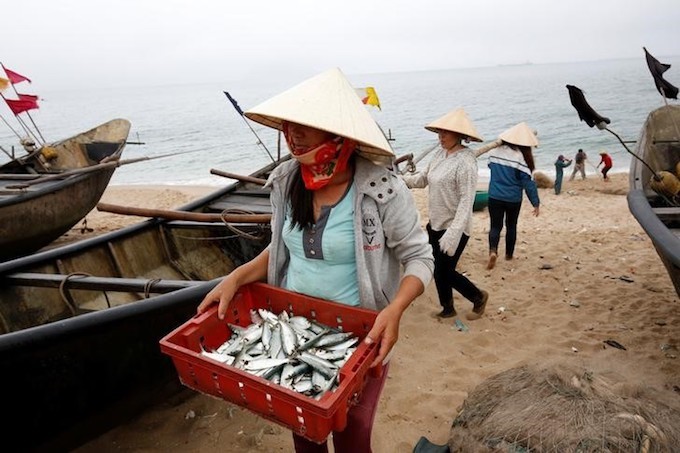

The government will use a grant from the Japan International Cooperation Agency to build integrated marine and fishery centers on islands in Indonesia’s six outermost regions to boost exports.
The agency, known as JICA, granted total funding of 2.5 billion yen ($22 million) for the construction of processing centers on Sabang in Aceh, Natuna in the Riau Islands, Biak in Papua and Morotai Moa and Saumlaki in Maluku.
“Once the program is completed, small fishermen will be able to use the upgraded fishing ports … and have access to various facilities, such as fish storage,” Shinichi Yamanaka, JICA’s Indonesian representative, said in a statement on Wednesday (01/08).
“Hopefully, this cooperation initiative will stimulate local fisheries and coastal citizens’ standard of living, especially those on Indonesia’s farthest islands,” Yamanaka said.
Nilanto Perbowo, secretary general of the Ministry of Maritime Affairs and Fisheries, said the government expects the facilities to be operational by 2020.
The facilities are part of President Joko “Jokowi” Widodo’s program to develop Indonesia’s remote areas, which includes the establishment of 20 integrated marine and fisheries centers.
The Indonesian fishing industry has seen rising production over the past three years, since the government started to crack down on illegal fishing activities. But the industry lacks the capability to process bigger catches, limiting local fishermen from reaching a broader market.
The country’s fishermen caught 7.7 million metric tons of fish last year, up 18 percent since 2014, when the crackdown began, according to Maritime Affairs and Fisheries Ministry data.
Still, it missed the government’s target of 8.8 million tons. Destructive Fishing Watch, a fisheries watchdog, said slow progress in mechanizing the fishing industry is one of the factors behind the failure. The government has set a target of 9.5 million tons of fish for this year.
Maritime Affairs and Fisheries Minister Susi Pudjiastuti met with Japanese Foreign Minister Taro Kono in Tokyo in May to request assistance with the construction of the facilities, arguing that the East Asian nation also stood to benefit from the increased availability of Indonesian products. The Banda Sea near Maluku for example, is a known source of yellowfin and bluefin tuna, which are in high demand in Japan.
Susi also asked Japan to exempt Indonesia from its 7 percent import tariff on fishery products, noting the archipelago’s successful crackdown on illegal fishing in its waters. Thailand and Vietnam are also exempt from the import tariff.
Indonesia has managed to reduce illegal fishing by foreign vessels by 90 percent and decreased illegal fishing by 25 percent overall, according to a study published on Nature Ecology & Evolution in March. The country took various steps to achieve this, including the sinking of hundreds of foreign vessels caught fishing illegally.